第24章 XI DIAGNOSIS OF THE BACILLUS LIBRORUM(1)
For a good many years I was deeply interested in British politics. I was converted to Liberalism, so-called, by an incident which I deem well worth relating. One afternoon Ientered a book-shop in High Holborn, and found that the Hon.
William E. Gladstone had preceded me thither. I had never seen Mr. Gladstone before. I recognized him now by his resemblance to the caricatures, and by his unlikeness to the portraits which the newspapers had printed.
As I entered the shop I heard the bookseller ask: ``What books shall I send?''
To this, with a very magnificent sweep of his arms indicating every point of the compass, Gladstone made answer: ``Send me THOSE!''
With these words he left the place, and I stepped forward to claim a volume which had attracted my favorable attention several days previous.
``I beg your pardon, sir,'' said the bookseller, politely, ``but that book is sold.''
``Sold?'' I cried.
``Yes, sir,'' replied the bookseller, smiling with evident pride;``Mr. Gladstone just bought it; I haven't a book for sale--Mr. Gladstone just bought them ALL!''
The bookseller then proceeded to tell me that whenever Gladstone entered a bookshop he made a practice of buying everything in sight. That magnificent, sweeping gesture of his comprehended everything--theology, history, social science, folk-lore, medicine, travel, biography--everything that came to his net was fish!
``This is the third time Mr. Gladstone has visited me,'' said the bookseller, ``and this is the third time he has cleaned me out.''
``This man is a good man,'' says I to myself. ``So notable a lover of books surely cannot err. The cause of home rule must be a just one after all.''
From others intimately acquainted with him I learned that Gladstone was an omnivorous reader; that he ordered his books by the cart-load, and that his home in Hawarden literally overflowed with books. He made a practice, I was told, of overhauling his library once in so often and of weeding out such volumes as he did not care to keep. These discarded books were sent to the second-hand dealers, and it is said that the dealers not unfrequently took advantage of Gladstone by reselling him over and over again (and at advanced prices, too) the very lots of books he had culled out and rejected.
Every book-lover has his own way of buying; so there are as many ways of buying as there are purchasers. However, Judge Methuen and I have agreed that all buyers may be classed in these following specified grand divisions:
The reckless buyer.
The shrewd buyer.
The timid buyer.
Of these three classes the third is least worthy of our consideration, although it includes very many lovers of books, and consequently very many friends of mine. I have actually known men to hesitate, to ponder, to dodder for weeks, nay, months over the purchase of a book; not because they did not want it, nor because they deemed the price exorbitant, nor yet because they were not abundantly able to pay that price. Their hesitancy was due to an innate, congenital lack of determination--that same hideous curse of vacillation which is responsible for so much misery in human life.
I have made a study of these people, and I find that most of them are bachelors whose state of singleness is due to the fact that the same hesitancy which has deprived them of many a coveted volume has operated to their discomfiture in the matrimonial sphere. While they deliberated, another bolder than they came along and walked off with the prize.
One of the gamest buyers I know of was the late John A. Rice of Chicago. As a competitor at the great auction sales he was invincible; and why? Because, having determined to buy a book, he put no limit to the amount of his bid. His instructions to his agent were in these words: ``I must have those books, no matter what they cost.''
An English collector found in Rice's library a set of rare volumes he had been searching for for years.
``How did you happen to get them?'' he asked. ``You bought them at the Spencer sale and against my bid. Do you know, I told my buyer to bid a thousand pounds for them, if necessary!''
``That was where I had the advantage of you,'' said Rice, quietly. ``I specified no limit; I simply told my man to buy the books.''
The spirit of the collector cropped out early in Rice. Iremember to have heard him tell how one time, when he was a young man, he was shuffling over a lot of tracts in a bin in front of a Boston bookstall. His eye suddenly fell upon a little pamphlet entitled ``The Cow-Chace.'' He picked it up and read it. It was a poem founded upon the defeat of Generals Wayne, Irving, and Proctor. The last stanza ran in this wise:
And now I've closed my epic strain, I tremble as I show it, Lest this same warrior-drover, Wayne, Should ever catch the poet.
Rice noticed that the pamphlet bore the imprint of James Rivington, New York, 1780. It occurred to him that some time this modest tract of eighteen pages might be valuable; at any rate, he paid the fifteen cents demanded for it, and at the same time he purchased for ten cents another pamphlet entitled ``The American Tories, a Satire.''